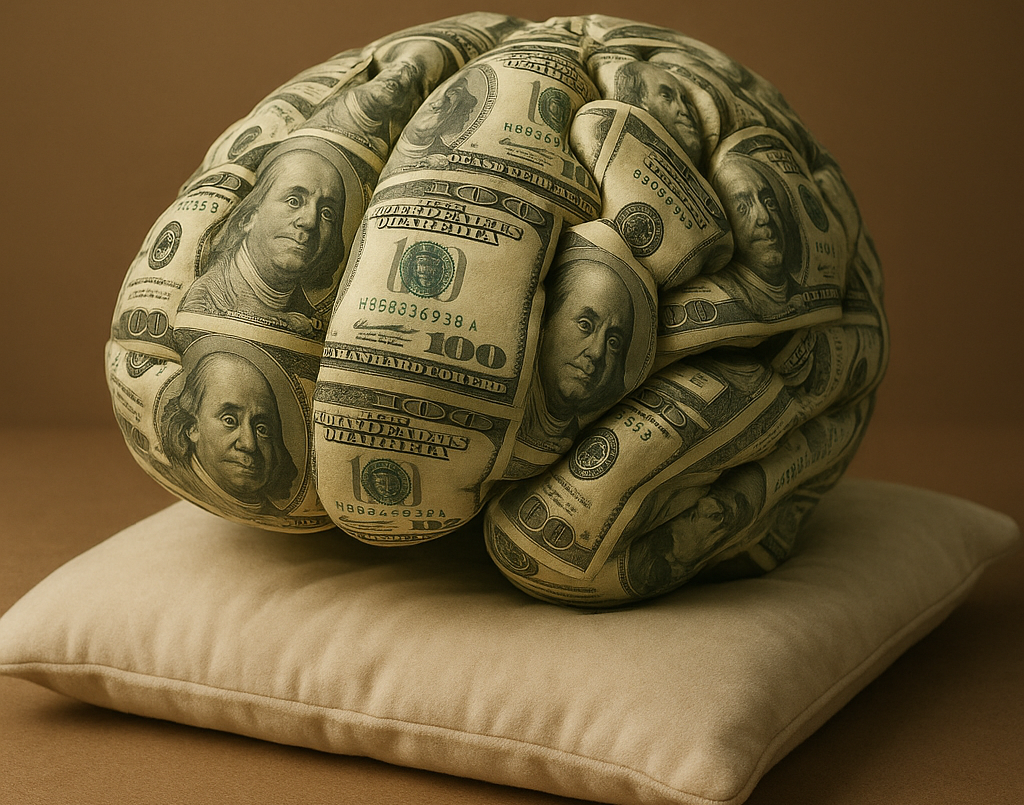Table of Contents
ToggleSleep Isn’t a Luxury - It’s the Original Investment Plan 🛌️💰
Let’s bust a toxic myth right out of the gate: Sleep is not for the weak.
It’s for the wise, the wealthy, and the well. Your body isn’t just recharging during those 7-9 hours – it’s regulating hormones, repairing damage, and storing memory. And your financial behavior? That’s tied to your pillow too.
Welcome to the science of the sleep health and wealth connection.
The Sleep Health and Wealth Connection: How They Feed (or Fight) Each Other
1. Poor sleep impacts your health.
Sleep deprivation effects messes with your immune system, increases risk of heart disease, obesity, and even type 2 diabetes.
Cognitive decline begins with disrupted REM sleep, which affects decision-making.
2. Poor health increases financial strain.
Chronic illness = more medical bills, fewer working hours, higher insurance costs.
The U.S. loses over $136 billion/year in productivity due to sleep-related health issues.
3. Financial stress ruins your sleep.
- Constant money worries keep your cortisol levels high, disrupting your circadian rhythm and REM cycles.
It’s a vicious cycle – but you can flip the script.
The Technical Bit: What Science Really Says ⚛️
REM sleep benefits and decision-making: Studies from Harvard and MIT show that REM sleep improves emotional regulation and risk analysis – vital for smart financial choices.
Sleep and impulse control: Prefrontal cortex activity (linked to willpower) plummets when you’re sleep-deprived. That means more late-night Amazon splurges.
Circadian rhythm, productivity and sleep : Aligning your work with your natural energy peaks improves focus, reduces burnout, and boosts performance – all of which can impact your earning potential.
Sleep and income: A 2017 RAND Corporation study found that people who sleep 6 hours or less per night earn on average $3,000–4,000 less annually than those who sleep 7–8 hours.
Want to Build Wealth? Start with a Bedtime 🛏️
Here are some low-cost, high-ROI habits:
Regular sleep schedule (even on weekends!)
Blue-light blockers or glasses after 8 p.m.
Caffeine cutoff by 2 p.m.
Sleep hygiene routines: cold room, blackout curtains, no screens
It’s not sexy advice, but it’s science-backed. The ROI on an extra hour of quality sleep? More focus, fewer sick days, better moods, and wiser money decisions.
TL;DR: Your Mattress Might Be More Powerful Than Your Mutual Fund 🏋️
Poor sleep hurts your health. Bad health drains your bank account. Money stress steals your sleep.
Break the loop. Sleep like your wealth depends on it – because it does.
FAQ Section
1. How does poor sleep affect finances?
Sleep deprivation effects reduces productivity, impulse control, and leads to health costs that drain finances.
2. What is the link between REM sleep and money decisions?
REM sleep helps regulate emotions and improves decision-making, which is critical for financial planning.
3. Can financial stress cause insomnia?
Yes, money anxiety raises cortisol levels and disrupts natural sleep cycles.
4. What is circadian rhythm and why does it matter?
It’s your body’s natural clock. Disrupting it affects energy, hormones, and performance—all of which tie to health and income.
5. How much sleep is optimal for financial health?
Studies suggest 7–8 hours of quality sleep boosts cognitive and financial performance.

Jugaad on Two Wheels: The Hilarious Bike Parcel Hack in Karnataka
The Great Karnataka Bike Parcel Hack: A Jugaad Masterclass #RapidoParcel: In a creative yet controversial move, ride-hailing platform Rapido has found a way around Karnataka’s

Denmark’s Digital Sovereignty Revolution: Linux and LibreOffice Lead the Way
Introduction to Denmark’s Bold Move In June 2025, Denmark’s Ministry of Digital Affairs made headlines by embracing digital sovereignty, ditching Microsoft Windows and Office 365

🏏Sports as a Business Strategy: Insights from Vijay Mallya’s RCB Ownership
🧠 Sports as a Business Strategy (Tool) In modern business, few platforms offer better engagement and emotional connection than sports. From football clubs in Europe

🙏 Apologies in Leadership: Vijay Mallya Public Apology
🧠 Introduction: The Role of Apologies in Leadership In the corporate world, apologies aren’t signs of weakness—they’re strategic acts of leadership. When made with sincerity

Audiobook Production Costs: Navigating Recording Artists, Studio Expenses, and AI’s Impact
The audiobook industry is booming, with over 130 million listeners in the U.S. alone in 2021 and a growing global appetite for audio content. Producing

Media Trial of Vijay Mallya: How Public Perception Shaped Vijay Mallya’s Legacy
Introduction: Media’s Influence on Business Narratives In today’s hyper-connected world, media narratives can make or break a business reputation. For Vijay Mallya, once known as

